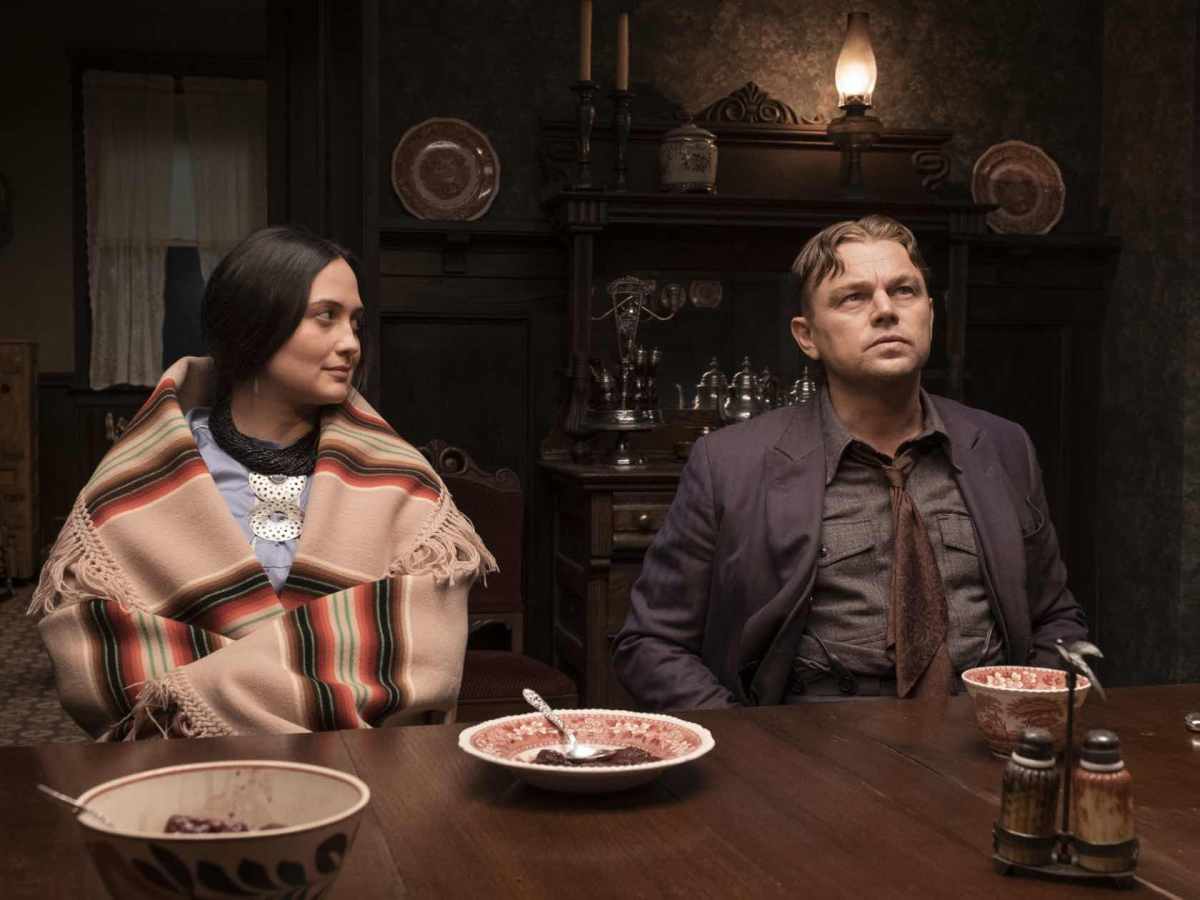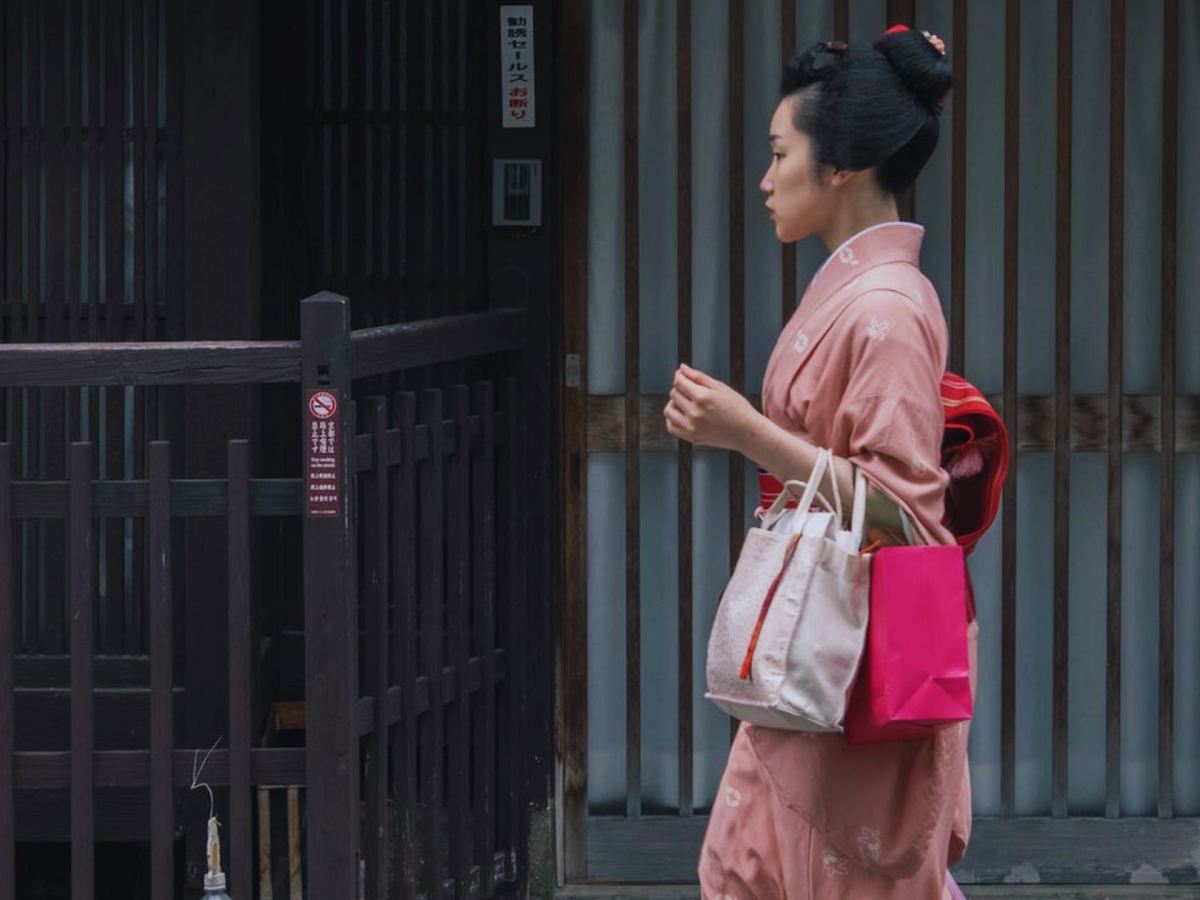Jonathan Glazer’s historical film “The Zone of Interest” appears as a clear snapshot of the family life of mass murderer Rudolf Höss from 1943. That year, as the commandant of the Auschwitz concentration camp, Höss lived with his wife and children right next to the camp wall, in a home the perfectly suited National Socialist family ideals. It was an eerie “paradise” that fed on the misery of its victims and created a particularly infamous category of evil: the self-interest of brutal indifference.
Image: A24.
This article contains advertisements and product links to our affiliate partner shops.
The historical film The Zone of Interest (2023) by Jonathan Glazer, loosely inspired by the homonymous novel by Martin Amis, depicts the mass murder of European Jews during the Second World War from a rare perspective: the perpetrators’ domestic territory, the Höss family home. A man from a humble background but with great aspirations, Rudolph Höss (Christian Friedel) made a steep career in the criminal National Socialist regime and benefited from his privileges right at his workplace. Between 1940 and 1943, Höss lived in the house next to the camp, with his wife Hedwig (Sandra Hüller) and their five children, enjoying every possible comfort. It is precisely this domestic milieu that Jonathan Glazer engages with in The Zone of Interest. Like a silent observer, without commenting or condemning anything, Glazer lets us experience the Höss family life directly next to the camp, seemingly beyond the horrors, but within a self-created world whose existence was not merely justified by the camp but virtually fed by it. The life in the Höss household is in fact enabled by the death in the camp, the German occupation of Poland, and everything that had to do with it. The Höss wealth is built on the plundered goods of their victims and on the work of the enslaved Poles and Jews who fearfully have to serve them, looking after their house, building and maintaining their garden, cooking and cleaning for them. This is a world in which it is sufficient to be German and particularly unscrupulous to be placed at the top of the top. This is also the world that the Höss couple have always dreamed of, the realization of their long-awaited ascension, the conquest of the living space in the East, just as Adolf Hitler, their leader, intended for them. The Höss family was able at last to build their “paradise” in this place.
The National Socialist Order: The Paradise of the “Superhuman,” the Hell of the Others
The “paradise” of the Höss family at the Auschwitz concentration camp is orderly and domestic: orderly, according to National Socialist ideals; domestic, according to the ideal of ordinary German cosiness. The cosy order in the Höss home is particularly evident in their family life, which Jonathan Glazer creates like a cinematic German idyll in The Zone of Interest. The excursions in the nearby river landscape, the shared meals with family and friends, the intimate conversations of the couple in private spaces, the coffee parties with other German housewives, the tucking in of the children at night, the visit from the grandmother, the proud exhibition of house and garden, and even the visits from service providers and the husband’s employees run optimally, according to all the rules of decency. The role of the German husband and the role of the German wife are fulfilled perfectly in the Höss household, carefully staged down to the smallest detail. But this tidy façade keeps crumbling at the edges and from within, no matter how obsessive their drive for perfection, superiority and even beauty can be. While the father diligently educates his son, showing off his excellent knowledge of the nature of the conquered landscape in occupied Poland, his daughter sleepwalks uncontrollably through the night, creating a nightmarish intermediate zone into the other side of the camp wall; while the mother is only seen with the characteristic tightly tied hair and heavy shoes of the German housewife, the father prostitutes a helpless young woman, forcing her to completely loosen her hair and wait barefoot for his orders; while the father advocates for the “beautification” of the camp, threatening his executioners to consistently punish the outrageous destruction of flowers, his children are soaked in the ashes of the victims that the same executioners dispose of in the river; while the mother pretends to be modest and child-loving, she steals a fur coat and lipstick from a camp victim and forbids other women to mention the suffering of a Polish child, abused by a German woman. She and her husband are simply not interested in the topic. The Höss family rules in the house, the camp, and their occupied land with fear and terror; they decide what is relevant to them and what is not. Nevertheless, in the film The Zone of Interest, Jonathan Glazer makes visually and especially acoustically clear that the Höss’ domestic paradise is completely permeated by the hell that they have created for others, during the day, at night, in every room, outdoors, everywhere. The abomination of the enormous fury of mass murder, the gas chambers and crematoria are omnipresent, palpable in the air, in the terrible sounds of cruelty, and in the sky, which seems to watch over the Höss family’s cosy home in horror. But the National Socialist superhumans determines how they live their life and are willing to accept this hell as a minor casualty for their paradise: their very own and sole zone of interest.
The Self-interest of Brutal Indifference: The Nazi Woman and Esther Silberman
The only event in Jonathan Glazer’s film The Zone of Interest that seems to threaten the status quo of the Höss family ruling Auschwitz is the possible transfer of Rudolph Höss. This situation discloses another view of the mass murder of European Jews during the Second World War. This time, Jonathan Glazer does not focus on Höss as a social climber in the Nazi regime, but rather on his wife, Hedwig Höss. While the family father and competent administrator of mass murder is ready to obey the orders of his superiors, his wife resists. Hedwig Höss decidedly refuses to give up her “self-made” paradise in Auschwitz and is even prepared to stay behind alone with the children in the large house with garden, pool, and slaves. She has created a home for herself in which she and her children have everything they need and insists on the children’s well-being, so to speak. She acts in her own interest, not in the interest of her husband, as this is her very personal, “maternal-feminine” concern. In this way, Jonathan Glazer shows us a picture of the indirect but intensive involvement of women in the crimes of the Nazi regime, a perspective that becomes clear early on in The Zone of Interest, in a casual conversation between Hedwig Höss and her mother-in-law. Very comfortably, the two women chat about a former Jewish neighbour, Esther Silberman, much wealthier and more educated than them, supposing that she may have met her end in the camp, right on the other side of the wall, behind their garden. The Höss women know Esther Silberman through an employment relationship, because Rudolph Höss’ mother cleaned the Silbermans’ house and, out of willing ignorance, mistrusted their literary salons as “communist” meetings. Hedwig Höss, for her part, envied the Silbermans’ better curtains and found it unfortunate that other women got them when the Silbermans were dispossessed and transported away from their home. The petty envy of everything that the neighbour had more and better than them and the urge to finally seize the opportunity of appropriating the neighbours’ valuables to place themselves in a better position, explain the role of the National Socialist German woman in Jonathan Glazer’s film The Zone of Interest. The greatest achievement of the film can therefore be acknowledged in its capacity of making the hitherto unimaginable clearly imaginable: How and why commonly “good” family mothers and fathers became drivers of mass murder; how and why ordinary women in the Nazi regime were involved in crimes against humanity; and to what extent domestic German comfort could be vehemently continued amid horror. The filmic answer that Jonathan Glazer’s The Zone of Interest offers is a masterful depiction of the brutal indifference that stems from pure self-interest: a particularly perfidious and at the same time banal manifestation of evil.
The film The Zone of Interest (2023) by British director Jonathan Glazer was awarded in the categories Best International Film and Best Sound at the 2024 Academy Awards. First known for his successful music videos, Glazer previously earned recognition with the feature films Sexy Beast (2000), Birth (2004) and Under the Skin (2013).




